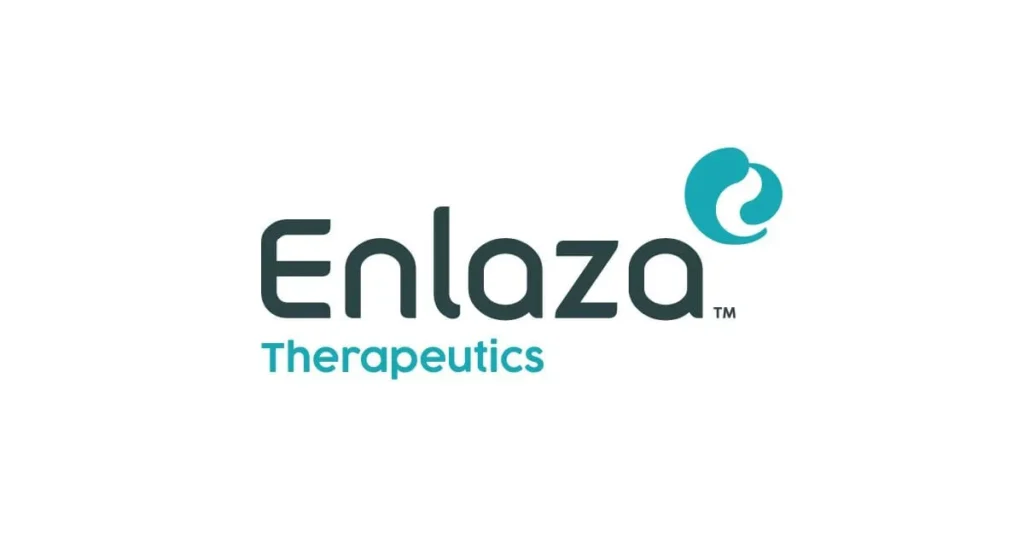
Enlaza Therapeutics and Vertex Pharmaceuticals Forge Multi-Billion-Dollar Collaboration to Advance Next-Generation Covalent Biologics in Autoimmune Diseases and Conditioning Therapies
Enlaza Therapeutics (“Enlaza” or the “Company”), a pioneering biotechnology firm and the first company to build a dedicated covalent biologics platform, has unveiled a significant new partnership with Vertex Pharmaceuticals (Nasdaq: VRTX), one of the world’s most successful and innovative biopharmaceutical companies.
The collaboration will center on the application of Enlaza’s proprietary War-Lock™ technology platform to develop a new class of small-format drug conjugates and T-cell engagers. These novel therapies aim to transform treatment for certain autoimmune diseases and to improve conditioning regimens for patients with sickle cell disease and beta thalassemia, particularly in connection with CASGEVY®, Vertex’s groundbreaking CRISPR/Cas9 gene-edited therapy.
The partnership represents both a strategic expansion of Enlaza’s technology into new therapeutic domains and a major financial commitment from Vertex, with the potential to deliver more than $2 billion in total value to Enlaza if development and commercialization milestones are achieved.
Enlaza’s War-Lock™ Technology: A New Frontier in Biologic Medicines
At the heart of this collaboration lies Enlaza’s War-Lock™ platform, a cutting-edge system designed to create highly specific “warheads” that covalently bind to their intended targets. Unlike traditional biologics, which often rely on reversible interactions with their targets, covalent binding offers long-lasting effects, higher precision, and potentially improved safety profiles.
The War-Lock™ approach leverages proprietary non-natural amino acids to precision-engineer biologic medicines. By expanding the traditional amino acid toolkit, Enlaza can design drugs that exhibit a level of selectivity, durability, and therapeutic reach that was previously unattainable with conventional biologics.
This “white-space technology” sits at the intersection of protein engineering and medicinal chemistry. It retains the specificity and modularity of small-format biologics while introducing a covalent, irreversible mechanism of action that has historically been limited to small-molecule drugs. The result is a platform that can potentially expand the therapeutic window, producing safer, more effective medicines across a wide array of disease areas.
Enlaza has already demonstrated the platform’s promise in oncology, where covalent protein drugs could offer significant advantages in targeting tumors. The collaboration with Vertex now extends the scope of War-Lock™ into autoimmune disease and conditioning therapies, marking a pivotal expansion into entirely new therapeutic categories.
A Strategic Inflection Point for Enlaza
For Dr. Sergio Duron, Ph.D., CEO of Enlaza Therapeutics, the collaboration represents a watershed moment:
“Our proprietary covalent biologics platform has demonstrated compelling promise in oncology, and this strategic collaboration marks a key inflection point as we expand into autoimmune indications,” said Duron. “By partnering with Vertex, a proven leader in bringing first-in-class and/or best-in-class medicines to patients, we gain a valued partner to help unlock the potential of covalent protein drugs, opening new markets and accelerating development of differentiated biologics with best-in-class potential.”

Duron’s remarks highlight not only the scientific innovation of Enlaza’s approach but also the business implications of aligning with Vertex—a company widely recognized for its disciplined R&D strategy and track record of delivering transformative therapies.
Vertex’s Expanding Focus: Autoimmune Diseases and Conditioning
While Vertex has built its reputation primarily in cystic fibrosis (CF), where it dominates the global market, the company has in recent years diversified its R&D into gene editing, rare blood disorders, and autoimmune diseases.
In late 2023, Vertex and CRISPR Therapeutics achieved a historic milestone with the regulatory approval of CASGEVY®, the world’s first CRISPR/Cas9-based therapy. CASGEVY® is approved for the treatment of sickle cell disease and transfusion-dependent beta thalassemia, conditions where patients face significant morbidity and limited treatment options. However, one of the key challenges in gene editing therapies is the conditioning regimen required prior to treatment. Current conditioning methods can be toxic, invasive, and a barrier to broader patient adoption.
Vertex has explicitly stated its commitment to developing “gentler conditioning regimens” to improve the safety and accessibility of CASGEVY®. By partnering with Enlaza, Vertex sees an opportunity to apply War-Lock™ technology toward conditioning solutions that could reduce toxicity, expand eligibility, and ultimately accelerate uptake of gene-editing therapies.
At the same time, Vertex is exploring autoimmune diseases as part of its broader strategy to address serious conditions where transformative therapies are needed. The War-Lock™ platform’s ability to engineer covalent T-cell engagers and other small-format biologics offers a promising approach to diseases characterized by immune dysregulation.
As Dr. Mark Bunnage, D.Phil., Senior Vice President of Global Research at Vertex, explained:
“Vertex is committed to developing transformative therapies for serious diseases that fit within our unique R&D strategy, including certain autoimmune diseases and gentler conditioning for CASGEVY®, the first and only approved CRISPR/Cas9 gene-edited therapy. We look forward to exploring the potential of Enlaza’s War-Lock platform to help us achieve these goals.”
Terms of the Collaboration
The deal reflects a balanced structure that rewards Enlaza upfront while offering significant long-term upside tied to the success of the programs:
- Upfront and Equity Investment: Enlaza will receive $45 million, which includes both cash and equity financing from Vertex.
- Milestone Payments: Enlaza is eligible to receive over $2 billion in research, development, regulatory, and commercial milestone payments.
- Royalties: The company will earn tiered royalties on net sales of any products that emerge from the collaboration.
- Research Leadership: Enlaza will lead all research activities through the stage of development candidate nomination.
- Development and Commercialization: Once candidates are selected, Vertex will assume responsibility for all future research, development, manufacturing, and commercialization.
- R&D Funding: Vertex will fund all research and development costs for the duration of the four-year collaboration.
Legal advisory roles were provided by Cooley LLP for Enlaza and Covington LLP for Vertex, ensuring the transaction structure reflects industry best practices.
Broader Industry Context: Covalent Biologics and Autoimmune Therapies
The Enlaza–Vertex collaboration sits at the intersection of several emerging trends in biotechnology:
- Rise of Covalent Drugs: Covalent small molecules have already achieved notable success in oncology (e.g., covalent KRAS and BTK inhibitors). Extending this paradigm into biologics is a bold and potentially transformative step.
- Next-Generation Autoimmune Therapies: The autoimmune market remains a major growth area, with blockbuster drugs such as Humira, Dupixent, and Cosentyx generating tens of billions in annual revenue. However, there remains significant unmet need, particularly in patients who fail or relapse after first-line biologic therapies. Covalent T-cell engagers could offer a new mechanism of action with higher durability and reduced dosing frequency.
- Conditioning for Gene Editing Therapies: Conditioning remains one of the most significant bottlenecks for curative gene-editing therapies. Safer alternatives could unlock broader patient populations and significantly expand market adoption for products like CASGEVY®.
Implications for Patients and the Biopharma Industry
For patients, the collaboration promises new therapeutic options in areas where current treatments are inadequate:
- Autoimmune Disease Patients: May benefit from more targeted, durable, and potentially safer biologic therapies.
- Sickle Cell and Beta Thalassemia Patients: Could access gentler conditioning regimens that reduce treatment risks and expand eligibility for gene-edited therapies.
For the biopharma industry, the deal underscores:
- Validation of Covalent Biologics: Vertex’s decision to partner with Enlaza highlights the growing recognition of covalent biologics as a legitimate and potentially disruptive therapeutic modality.
- Big Pharma’s Appetite for Innovation: The scale of the deal—over $2 billion in potential payments—signals that large pharmaceutical companies are willing to make major bets on emerging technologies that could reshape therapeutic landscapes.
- Shift Toward Long-Term Partnerships: With Enlaza leading early-stage research and Vertex taking on later development, the collaboration reflects a model that plays to each company’s strengths while aligning incentives.
The next few years will be critical in determining the success of the partnership. Key milestones will likely include:
- Identification and validation of lead drug candidates using the War-Lock™ platform.
- Preclinical studies demonstrating improved safety and efficacy in autoimmune disease models.
- Development of novel conditioning regimens with favorable safety profiles compared to existing approaches.
- Transition of candidates into clinical development under Vertex’s leadership.
If successful, the collaboration could establish covalent biologics as a new class of transformative medicines—one that bridges the best features of small molecules and biologics, while opening the door to previously intractable disease targets.
The collaboration between Enlaza Therapeutics and Vertex Pharmaceuticals represents a bold bet on the future of covalent biologics and their potential to reshape treatment paradigms across autoimmune disease and conditioning for gene-editing therapies.
By combining Enlaza’s breakthrough War-Lock™ platform with Vertex’s proven track record in drug development and commercialization, the partnership has the potential to deliver safer, more effective, and more durable therapies to patients with serious, life-altering diseases.
The structure of the deal—up to $2 billion in potential milestones, plus royalties—reflects both the promise and the ambition of this collaboration. For Enlaza, it marks a turning point in its journey from oncology innovator to multi-platform biotech player. For Vertex, it is yet another example of its commitment to expanding into first-in-class therapeutic modalities that align with its long-term strategy.
As the programs advance, the Enlaza–Vertex alliance could emerge as a case study in how strategic partnerships accelerate the translation of cutting-edge science into real-world patient benefit.





